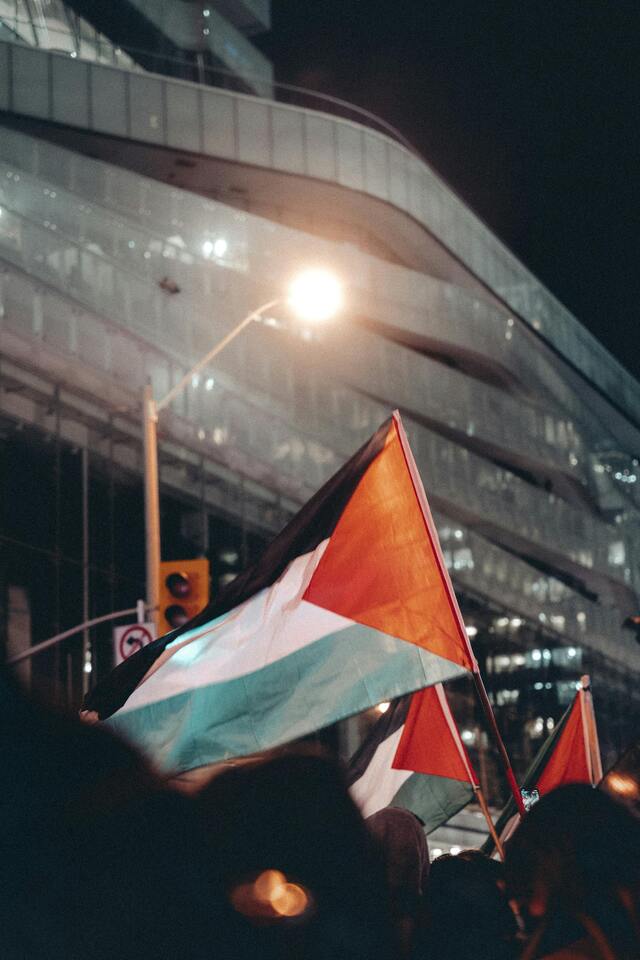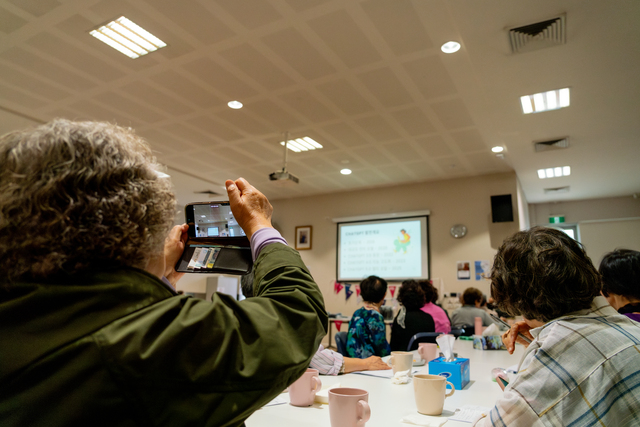Hillside resident Hala Sekak left her original home in Gaza almost 50 years ago, but she said her childhood memories of the area left her with a painful mark.
“I remember playing with my cousins outside the villa’s door in our garden when a military jeep stopped, and Israeli soldiers armed to the teeth emerged, moving towards us while holding their weapons,” she said.
“All the children with me fled, but due to my young age, I couldn’t escape. I felt intense fear, and from that day on, nightmares began plaguing my nights. I felt in danger yet paralyzed, unable to flee.
“I recall their entry into the villa another day, and we hid on the roof with my mother, my brother, and my grandmother. They smashed pieces of our furniture, vandalising under the guise of searching for weapons in the house, even though my father was a well-known school principal.”
After moving away, visits home throughout her childhood contained grim contrasts, with the Gaza’s natural beauty and the joy of familial love and gatherings all mired by struggle and heavy scrutiny from authorities.
Ms Sekak said she stopped visiting after 2000 because security became too intense.
“[Gaza] became a prison for its people, and entry became very difficult,” she said.
Now, Ms Sekak said watching the destruction of her homeland escalate from afar, she feels shattered – “as a Palestinian and as a human”.
“As I witness the devastation of places, it’s as if my childhood, memories, and homeland are being obliterated before my eyes,” she said.
“Sleep, appetite, and joy become unattainable luxuries. Hours pass in front of the television, consumed by news updates, each moment punctuated by overwhelming feelings of anguish, powerlessness, and fury.”
Ms Sekak said her family is one of the largest in Gaza, and she has many relatives there.
“We have lost a significant number of them, around 200 people to date, mostly women and children,” she said.
“One building containing several apartments belonging to my relatives collapsed on them due to savage Israeli airstrikes. A large portion of the family still resides in the north, struggling with food shortages, hunger, and the absence of potable water. Another segment of the family has abandoned their homes, displaced to southern Gaza, where they live in tents under extremely harsh conditions.”
Ms Sekak said she has been striving to support Gaza through organising, protesting, educating, and her art – she said she has felt the strong support from the Australian community but hopes governments follow suit.
“I wish for immediate support for a ceasefire, and I hope for government assistance in delivering humanitarian aid to the Gaza Strip, especially the northern region, and in enforcing international human rights laws,” she said.







